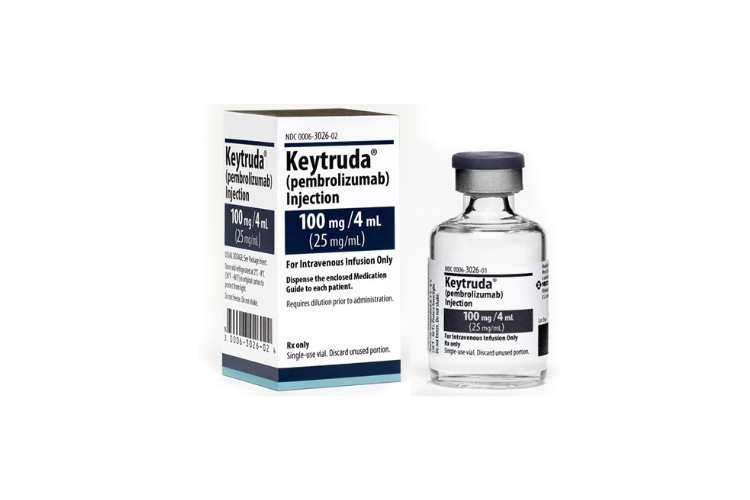Merck’s immunotherapy drug, Keytruda, continues to demonstrate success in the field of bladder cancer. After securing FDA approvals for use in metastatic and non-muscle invasive bladder cancer, Keytruda has now delivered positive results in localized muscle-invasive and locally advanced urothelial carcinoma.
In a phase 3 trial called the Ambassador trial, Keytruda proved effective in lowering the risk of disease recurrence or death when administered after surgery. The trial successfully met its primary endpoint of disease-free survival during an interim analysis. The study is still ongoing to assess whether Keytruda can also extend patients’ lives, which is the other dual primary endpoint. Additionally, the trial will analyze results in subgroups based on PD-L1 expression. This dual primary endpoint design allows the trial to be considered successful by achieving just one of the primary goals. Merck intends to discuss these results with regulatory authorities.
The success of Keytruda as an adjuvant therapy in the muscle-invasive bladder cancer trial was widely anticipated, especially since Bristol Myers Squibb’s rival drug, Opdivo, received FDA approval for a similar use in 2021. Opdivo was shown to more than double the average time patients with resected, high-risk bladder cancer lived without disease recurrence compared to a placebo, according to long-term data from the CheckMate-274 trial. It’s worth noting that up to half of bladder cancer patients experience recurrence within a year after surgery.
Also Read: Ferring Launches Bladder Cancer Gene Therapy Adstiladrin In US Through Early Experience Program
Keytruda initially gained accelerated approval in the bladder cancer arena in 2017 for the treatment of newly diagnosed, advanced disease in patients ineligible for cisplatin-based chemotherapy. However, after a phase 3 trial setback, the FDA restricted the use of Keytruda monotherapy in the first-line setting in 2021, permitting its use only in patients who cannot tolerate any form of platinum chemotherapy.
In April of the same year, Keytruda regained its original position in the first-line cisplatin-ineligible setting as part of a combination therapy with Seagen and Astellas’ antibody-drug conjugate, Padcev. This combination also garnered attention with a positive outcome from the EV-302 trial, which assessed its use in first-line patients regardless of platinum chemotherapy eligibility.
Prior to the success of the Keytruda-Padcev combination, Merck and Eisai attempted to enhance Keytruda’s efficacy by pairing it with the tyrosine kinase inhibitor Lenvima. However, the phase 3 LEAP-011 trial yielded negative results, rendering Lenvima ineffective in certain front-line patients who were ineligible for platinum chemotherapy.
Also Read: Padcev-Keytruda Combo Cuts Death Risk In First-Line Bladder Cancer
In addition to these developments in the first-line metastatic setting, Keytruda monotherapy received FDA approval in early 2020 for the treatment of high-risk non-muscle invasive bladder cancer unresponsive to standard BCG treatment.
Merck, in collaboration with Seagen and Astellas, aims to expand the use of the Keytruda-Padcev combination in other areas of bladder cancer. The phase 3 EV-303 trial is currently evaluating Keytruda with or without Padcev for use both before and after surgery in muscle-invasive bladder cancer patients who are cisplatin-ineligible or decline cisplatin treatment. Meanwhile, the phase 3 EV-304 trial is comparing the Keytruda-Padcev combination, used in both pre- and post-surgical muscle-invasive settings, against neoadjuvant cisplatin-based chemotherapy. In the same cisplatin-eligible population, Merck is running the Keynote-866 trial for Keytruda and chemotherapy around the time of surgery.
These developments underscore the dynamic landscape of immunotherapy in the treatment of bladder cancer, with Keytruda at the forefront of multiple innovative approaches.





























